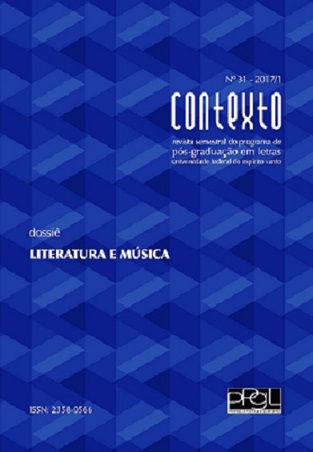El Gran Hermano burlado: la neolengua oficial y la neolengua contracultural durante la Dictadura Militar (1976–1983) en Argentina
DOI:
https://doi.org/10.47456/contexto.v%25vi%25i.14944Resumo
RESUMEN: La dictadura militar argentina (1976–83) intentó manipular el lenguaje con el fin de moldear la mentalidad de la ciudadanía. Valiéndose de una maquinaria censora que parece tomada de la novela 1984, el régimen creó un idioma equivalente a la neolengua orwelliana. Ante esta ofensiva verbal, los músicos de rock desarrollaron su propia neolengua, un sistema de significados de crítica cifrada y oblicua al régimen militar. Esta estrategia no sólo les facilitó el repentino auge y éxito del género musical, sino que les permitió subvertir el sistema censor, recibiendo la invitación amistosa del régimen a trabajar en cooperación.
PALABRAS-CLAVE: Argentina. Dictadura. Rock. Censura. 1984.
ABSTRACT: Argentina’s last military dictatorship (1976–83) attempted a manipulation of language in order to mold the minds of its citizens. Availing itself of a censorship mechanism that seems taken straight from the novel 1984, the regime created a language equivalent to Orwellian Newspeak. Faced with this verbal offensive, rock musicians developed their own language, a system of metaphorically encoded criticism of the military government. This
allowed musicians to give the appearance of working with the regime while actually subverting its censorship, a strategy that took the genre to the heights of popular success.
KEYWORDS: Argentina. Dictatorship. Rock. Censorship. 1984.
Downloads
Publicado
Edição
Seção
Licença
Copyright (c) 2021 Mara Favoretto, Timothy Wilson

Este trabalho está licenciado sob uma licença Creative Commons Attribution-NonCommercial 4.0 International License.

Este obra está licenciado com uma Licença Creative Commons Atribuição-NãoComercial 4.0 Internacional.





